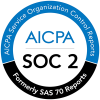Harnessing the Cloud: A new era of cost efficiency in Market Data Management
In the complex world of financial markets, managing market data effectively is a crucial yet challenging task for institutions like banks, brokers, asset managers, and insurance companies. The emerging trend of cloud-based market data management is revolutionizing this space, not only by enhancing operational efficiency but also by significantly reducing data purchasing costs.
Operational efficiencies: The Cloud’s transformative impact
The shift to cloud-based solutions in market data management marks a significant change from traditional, on-premise systems. In a cloud environment, the inherent flexibility and scalability allow for more efficient data processing and storage. The reduction in the need for extensive on-site infrastructure and the associated maintenance costs is a primary factor in operational cost savings. Moreover, cloud platforms facilitate quicker integration and deployment, enabling institutions to respond rapidly to changing market conditions and regulatory requirements without substantial IT resource allocation.
Data purchasing cost savings: Strategic insights from the Cloud
One of the less discussed yet significant advantages of cloud-based market data management is the potential for savings in data purchasing. These platforms often provide more comprehensive and integrated views of data usage across the entire organization. This visibility allows for more strategic purchasing decisions, identifying areas where data subscriptions can be consolidated or eliminated, thereby avoiding unnecessary expenses.
Additionally, the flexibility of cloud platforms in integrating diverse data sources can lead to more competitive and cost-effective data sourcing strategies. Institutions can leverage the cloud to combine traditional vendor data with alternative and specialized sources, often at a lower cost. This approach not only diversifies the data pool but also drives down the overall expenditure on market data.
Data purchasing cost savings: – the low hanging fruit
1 – Consolidate data subscriptions: Utilize cloud platforms to gain a comprehensive view of your data needs and subscriptions. This allows for identifying and eliminating redundant data requests or even data feeds, thus reducing overall costs.
2 – Leverage alternative data sources: The cloud allows for easier integration of alternative and specialized data sources, which can often be more affordable than traditional data vendors.
3 – Implement advanced analytics for data evaluation: Employ cloud-based analytics tools to evaluate the true value and utility of your data sources. This ensures you are only paying for data that provides actionable insights and value to your organization.
3 – Negotiate better terms with Data Vendors: Armed with detailed usage statistics from your cloud platform, negotiate more favorable terms with data vendors based on actual consumption and utility rather than flat-rate pricing.
4 – Custom data blending: Blend data from various providers to create custom datasets tailored to specific needs. This can be more economical than purchasing comprehensive datasets from a single provider.
5- Dynamic data source switching: Utilize the ability to switch between data sources without affecting API output to explore cost-effective data options. This enables rapid adaptation to the most competitive data sources without disrupting downstream applications.
A strategic leap forward: Embracing Cloud for Market Data
The journey towards more efficient and cost-effective market data management is not just about technology adoption; it’s a strategic shift. With cloud-based solutions, financial institutions are not only looking at immediate cost benefits but also at long-term gains in agility, compliance, and decision-making capabilities. The future of market data management lies in leveraging the cloud to transform data from a cumbersome necessity into a strategic asset that drives both savings and performance.



